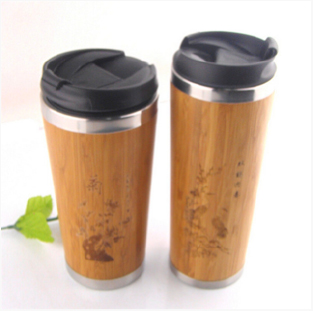When it comes to eco-friendly promotional products – particularly the question of what exactly makes a branded item "eco-friendly" in the first place – any discussion could last for some time. There are so many factors to consider before trying to calculate whether, say, a pen made from recycled plastic, is "eco-friendly".
Just because an is made with recycled materials, rather than tapping into finite resources, doesn't mean there's no carbon footprint, or that fossil fuels have not be burnt.
A true "Zero Carbon Footprint" – meaning no CO2 has been released into the atmosphere are a result of manufacture – can be difficult to achieve.
But what we are aiming for when going green is to re-use otherwise useless and polluting waste rather than use fresh raw materials unnecessarily. The aim is to, at least, reduce the amount of carbon dioxide escaping into the air. We want to re-use products, whether it's a printed promotional pen, or a household essential. The longer the life span of raw materials, the less strain we put on the environment.
With this in mind we've decided to focus on what we believe to be one of the most eco-friendly alternatives out there, and a genuinely viable alternative to using plastics: behold the miracle of bamboo.
Personal travel too – especially short breaks – has increased. As with travelling for work, individuals are prepping themselves more for weekends away, especially spent outdoors.
Bamboo is actually a grass. But don't let that fool you, the vast variety of species – all with slightly differing desirable properties – makes it an ultra-versatile plant that is now being actively developed for production within many industries.
But why is this unique raw material now seen as an alternative to plastic within the promotional merchandise industry. For the answer, we need to look beyond the eco credentials of simply reducing plastic consumption.
We'd also like to show you how you can switch your current promo products, to a bamboo alternative, as well as what added benefits placing your logo on such an environmentally-sound material might mean.
Why Bamboo
Most people's image of bamboo is as panda fodder. But the possibilites go much further.
It has been seen – especially in the West – as weak and inferior, durable or strong enough only to support tomato plants.
However, the 1,000 or more different varieties include solid tree-like plants which have been used as scaffolding poles by construction teams building skyscrapers in Hong Kong. It has greater tensile strength than steel and is able to withstand greater compression than concrete.
True Sustainability
Bamboo has unique properties compared to other natural materials, not least the ability to grow at lightning speed. What this means is that when bamboo is harvested, it is replaced in a very short time. With some species growth is measured in metres per day. And all of this comes with another environmental benefit; as a plant, bamboo takes in CO2 as it grows.
With the time to replace the plants being so fast the environmental impact is minimal – bamboo in essence is the very definition of a sustainable material.
Lets make the switch
So if bamboo is strong and sustainable, how can you switch from printing on plastic to branding on bamboo.
If becoming more eco-friendly across your operations, you might be pleased to hear that the range of bamboo products is large and ever-growing. And with new technologies in the pipeline, production possibilities are continuously increasing.
In the early days of bamboo branding products, the switch of materials was more basic. Instead of a plastic case on a USB pen drive, bamboo "timber" would be used instead. More early substitution concepts included ...
|
Original |
Subsitution
|
 |
 |